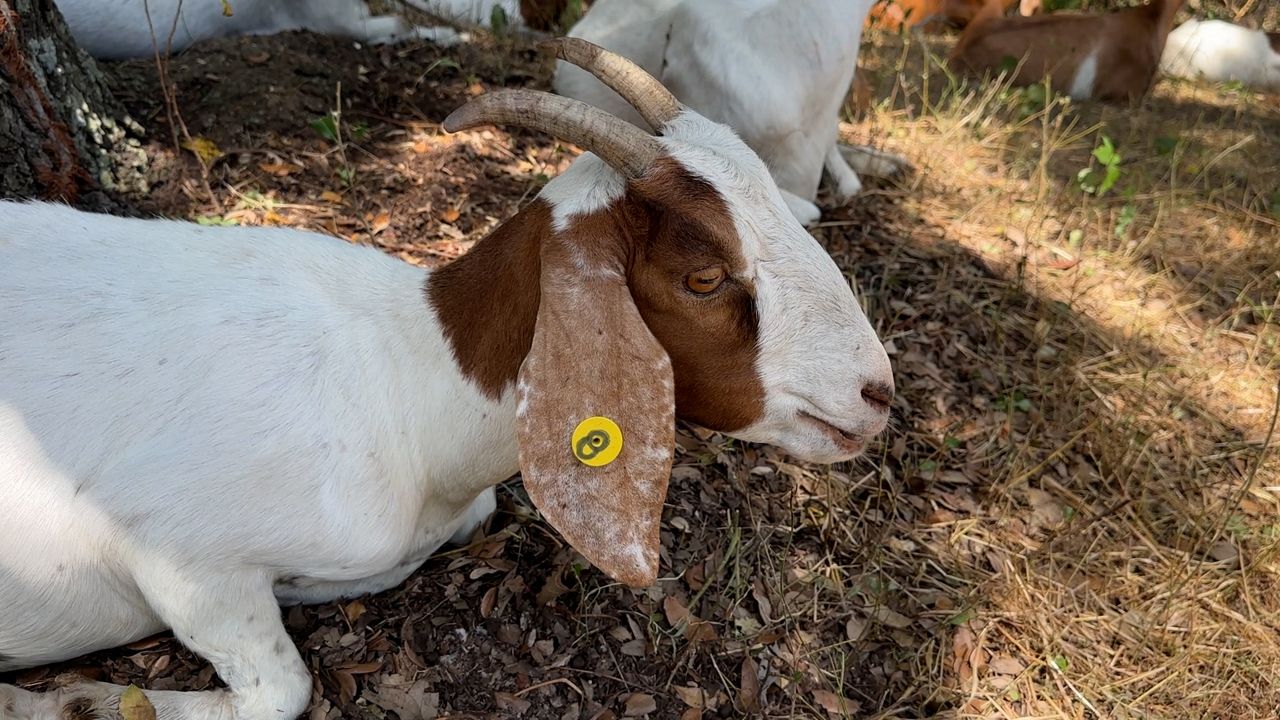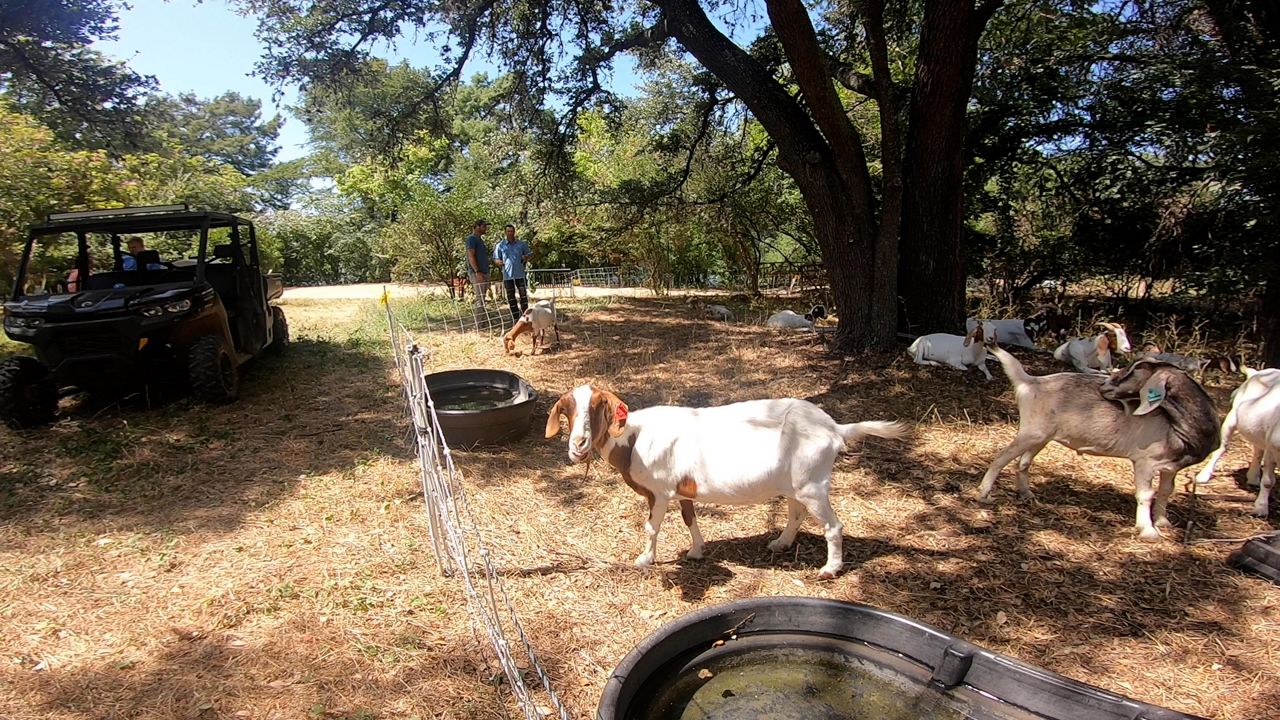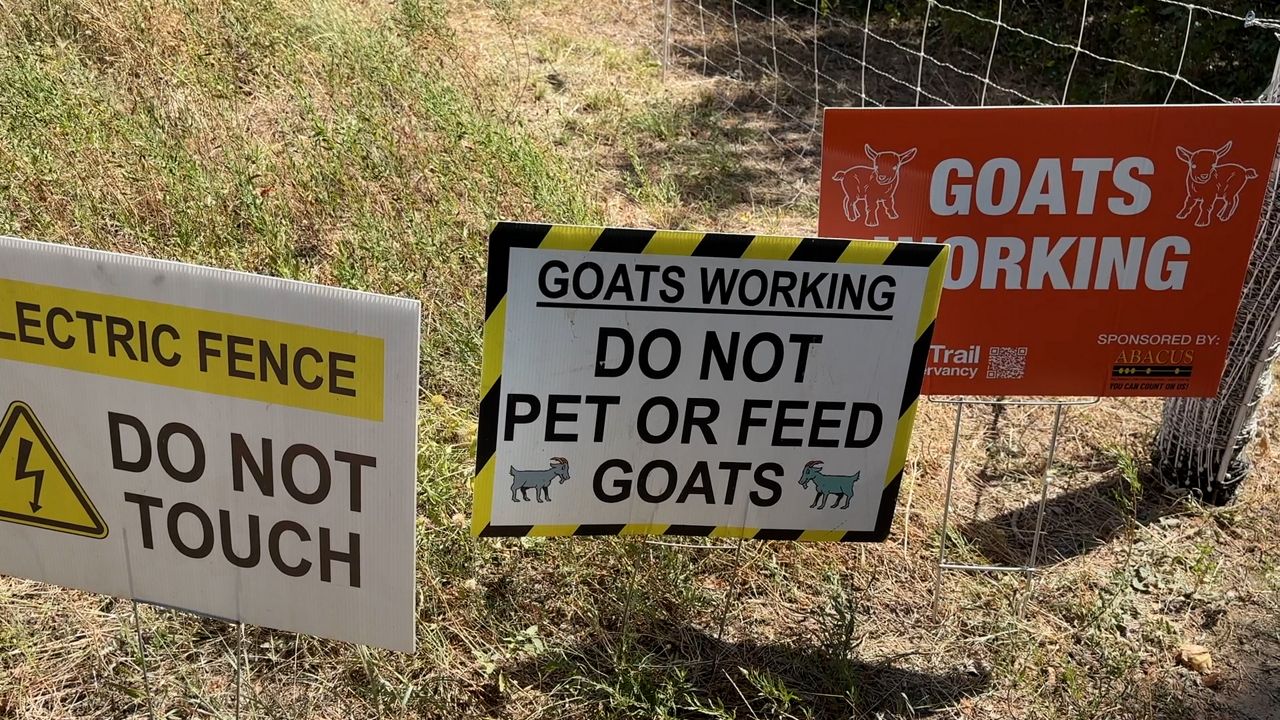AUSTIN, Texas — Poison ivy is an allergenic plant that causes agitation to many that come in contact with it, especially people. But instead of using harsh chemicals to weed out the problem, goats are a more natural approach as they can just chew through the issue. A pilot program in Austin is using those goats to graze on the intrusive poison ivy.
“It’s an alternative to using pesticides. It’s an organic way to help try to restore a functional understory into these woodlands,” said Grady Reed, park operations director with the nonprofit Trail Conservancy.
With the Ann and Roy Butler Trail in need of some brushing up, Reed had the perfect summer job for those on a plant-based diet.

“We’ve identified areas that are majority poison ivy or invasive species, and then they’ll do about an acre every day to two days,” Reed said.
Through a partnership with Rent-a-Ruminant, a Central Texas-based livestock grazing company, 150 goats will spend the next few weeks clearing more than seven acres around Lady Bird Lake while leaving natural fertilizer. It’s part of an eco-friendly pilot program.

“We’re always looking for new ways, or — in this case — old ways of natural area management,” Reed said. “Trying to be responsible land stewards is really about learning, growing, and that’s an important part of this process.”
Goats have a natural defense against many poisonous plants that are often dangerous to humans. They serve as a perfect opponent to place against this annual problem.
“They do get breaks throughout the day. Even though they’re resting, they’re still working,” Carr said.
Kyle Carr and his wife Terry have taken their employees all across the state, using lightly electrified paddocks to keep the goats safe and moving from one task to the next.
“As long as we provide them with fresh things to eat, they’re quite happy,” Carr said. “Whenever they’re ready to move on, they get pretty vocal.”
When the area is deemed safe, park professionals and volunteers can move into the harder to reach locations and pick up where the herd left off. Reed said he hopes to raise funds for a second test run this upcoming fall. In the meantime, Austinites can admire their work from afar.

“First and foremost, don’t pet the goats. They’ve been eating poison ivy and they definitely have poison ivy oil on them,” Reed said.



